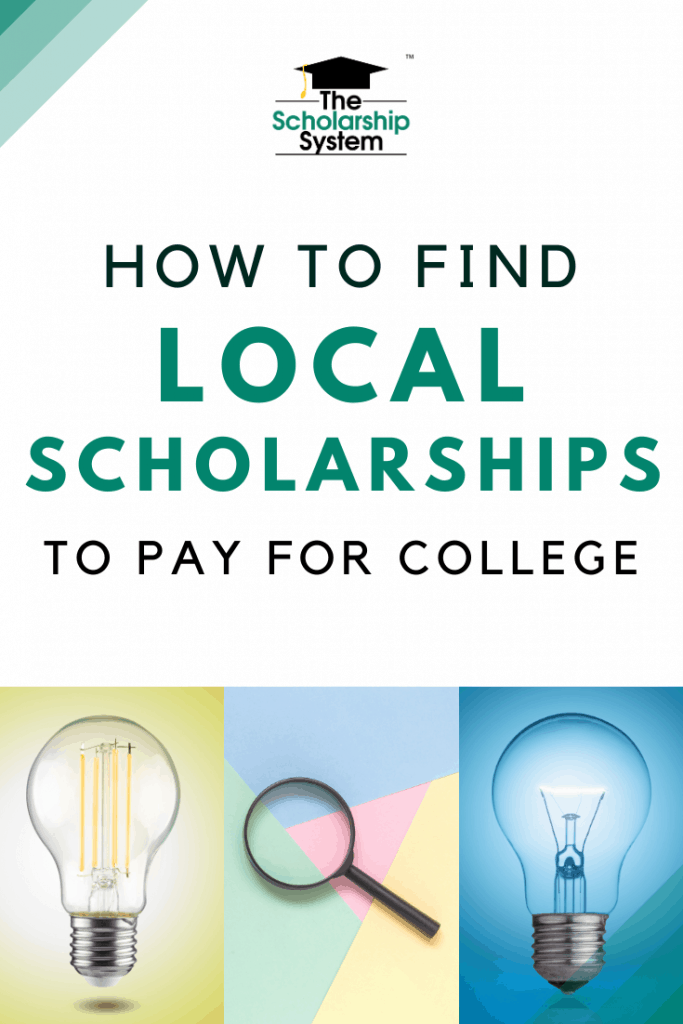Leveraging Local Scholarships for National and International Students

Navigating the complexities of higher education financing can be particularly daunting for students, regardless of their origin. While national and international scholarships often capture the spotlight, a wealth of opportunities lies hidden within local communities. This article delves into the often-overlooked potential of local scholarships as vital resources for both national and international students. We explore how these geographically-focused awards can significantly alleviate financial burdens, increase accessibility to education, and foster stronger connections between students and their host communities. By uncovering strategies to identify, apply for, and maximize the benefits of local scholarships, we aim to empower students to pursue their academic dreams with greater financial confidence.
Leveraging Local Scholarships for National and International Students
Leveraging local scholarships represents a strategic approach for both national and international students seeking to finance their education. While often overlooked, these scholarships can provide significant financial relief and open doors to educational opportunities that might otherwise be inaccessible. For national students, local scholarships can reduce the overall burden of tuition and living expenses, allowing them to focus more on their studies and less on financial worries. For international students, these scholarships can make studying abroad a more realistic and affordable option, especially considering the often-higher tuition fees and living costs associated with studying in a foreign country. Furthermore, local scholarships often have less competition than national or international awards, increasing the chances of success for applicants who meet the eligibility criteria. Therefore, exploring and actively pursuing local scholarship opportunities should be a crucial component of any comprehensive financial planning strategy for students pursuing higher education.
Identifying Local Scholarship Opportunities
The first step in leveraging local scholarships is to identify available opportunities. This involves diligent research and networking. Students should start by exploring resources within their local community, such as high school guidance counselors, community foundations, local businesses, and civic organizations. Local libraries often maintain directories of scholarships and grants. Online searches using specific keywords related to the student's field of study, location, and demographic characteristics can also reveal potential scholarships. Networking with local professionals and community leaders can provide valuable insights and referrals to relevant scholarship programs.
Understanding Eligibility Requirements
Once potential scholarship opportunities are identified, it's crucial to thoroughly understand the eligibility requirements. Each scholarship program has specific criteria that applicants must meet to be considered. These criteria may include factors such as academic merit, financial need, residency, field of study, extracurricular activities, and community involvement. Carefully reviewing the scholarship guidelines is essential to ensure that the student meets all the requirements before applying. Applying for scholarships for which the student is not eligible is a waste of time and effort.
Crafting a Compelling Application
Submitting a strong and compelling application is paramount to maximizing the chances of receiving a local scholarship. The application should highlight the student's academic achievements, extracurricular involvement, leadership skills, and personal qualities. A well-written essay is a crucial component of the application, allowing the student to articulate their goals, aspirations, and the impact they hope to make on their community. The application should be tailored to the specific scholarship program, emphasizing the student's alignment with the scholarship's mission and values.
Highlighting Community Involvement
Local scholarships often prioritize students who demonstrate a strong commitment to their community. Participating in volunteer activities, community service projects, and local initiatives can significantly enhance a student's scholarship application. Highlighting these experiences in the application and essay demonstrates the student's dedication to making a positive impact on their community and their understanding of local issues. Providing specific examples of contributions and the impact they had can further strengthen the application.
Building Relationships with Local Organizations
Building relationships with local organizations and community leaders can be incredibly beneficial in securing local scholarships. Attending local events, volunteering with local organizations, and engaging in community initiatives provide opportunities to connect with individuals who may be involved in scholarship programs. Networking with these individuals can provide valuable insights into scholarship opportunities and increase the student's visibility within the community. Demonstrating genuine interest and commitment to the local area can make a lasting impression and improve the chances of receiving a scholarship.
| Scholarship Type | Eligibility Criteria | Application Requirements | Typical Award Amount |
|---|---|---|---|
| Local Business Scholarships | Academic merit, residency in the local area, interest in a specific field related to the business. | Application form, transcript, essay, letter of recommendation. | $500 - $2,000 |
| Community Foundation Scholarships | Financial need, academic merit, community involvement, residency in the local area. | Application form, financial aid documentation, transcript, essay, letters of recommendation. | $1,000 - $5,000 |
| Civic Organization Scholarships (e.g., Rotary Club, Lions Club) | Community service, leadership skills, academic merit, residency in the local area. | Application form, essay, letters of recommendation, interview. | $500 - $3,000 |
| High School Alumni Scholarships | Academic merit, graduating from the specific high school, acceptance to a college or university. | Application form, transcript, acceptance letter, essay. | $250 - $1,000 |
| Union Scholarships | Membership in the union or a family member being a member, academic merit, specific field of study. | Application form, proof of membership, transcript, essay, letters of recommendation. | $500 - $2,500 |
Why are local scholarships better?

Less Competition
Local scholarships tend to have a significantly smaller applicant pool compared to national or even state-wide awards. This is because eligibility is restricted to students from a specific geographic area, such as a city, county, or school district. With fewer applicants vying for the same funds, your chances of winning a local scholarship are statistically higher. This means that your qualifications and achievements stand out more prominently, increasing your likelihood of being selected. Local communities wants to support their students through this opportunities.
- Fewer applicants increase the chances of being selected.
- Qualifications and achievements stand out more.
- Restricted eligibility.
Stronger Community Connection
Local scholarships foster a deeper connection between the scholarship recipient and the community that provides the funding. These scholarships are often funded by local businesses, organizations, or individuals who have a vested interest in the success of students in their area. Receiving a local scholarship can open doors to networking opportunities, mentorships, and potential internships within the community. This support is a great pillar in every student career.
- Opportunities for local networking and mentorship.
- Potential internships with local businesses.
- A feeling of being invested in the community's future.
More Tailored Requirements
The eligibility requirements and selection criteria for local scholarships are frequently more relevant to the experiences and backgrounds of students from that particular community. Scholarship committees often prioritize students who have demonstrated a commitment to local issues, participated in community service activities, or overcome specific challenges faced by residents of the area. This allows students to highlight their unique skills and experiences more effectively.
- Relevance to local experiences and backgrounds.
- Recognition of local community service.
- Opportunities to address local challenges.
Greater Understanding of Local Needs
Local scholarship providers have a better understanding of the specific needs and challenges faced by students in their community. They may offer scholarships specifically designed to support students pursuing certain fields of study that are in demand locally, or to address financial barriers that are particularly prevalent in the area. This targeted approach ensures that the scholarship funds are used effectively to benefit the community.
- Targeted support for specific fields of study.
- Addresses local financial barriers.
- A stronger sense of belonging and community.
Easier Access to Information
Information about local scholarships is often more readily accessible than information about national or regional awards. You can often find details about local scholarships through your high school guidance counselor, local libraries, community centers, or the websites of local businesses and organizations. This simplified access makes the search process more manageable and efficient. Many local events showcase this oportunities.
- Information available through local resources.
- Simplified search process.
- Less bureaucracy.
What is the easiest scholarship to get for international students in the US?

How do local scholarships work?

Eligibility Criteria for Local Scholarships
Eligibility criteria for local scholarships can vary widely depending on the scholarship provider. Generally, they are tailored to reflect the specific goals and values of the organization offering the scholarship. Here are some common elements of eligibility:
- Residency Requirements: Many local scholarships require applicants to be residents of a specific city, county, or region. This ensures that the funds support students who have ties to the community.
- Academic Achievement: While some scholarships focus solely on financial need, many also consider academic merit. Minimum GPA requirements are common.
- Field of Study: Some local scholarships are designated for students pursuing specific fields of study that are relevant to local industries or community needs. For example, a local hospital might offer a scholarship for nursing students.
- Community Involvement: Local organizations often value community involvement. Applicants may need to demonstrate participation in volunteer activities, clubs, or other community service initiatives.
- Financial Need: Many local scholarships consider the applicant's financial need, often requiring families to submit financial information like tax returns or FAFSA reports.
Finding Local Scholarship Opportunities
Discovering local scholarship opportunities requires proactive research and networking. Here are some effective strategies:
- High School Guidance Counselors: Your high school guidance counselor is an invaluable resource. They often have information about local scholarships and can provide guidance on the application process.
- Local Libraries: Libraries frequently maintain lists of local scholarships and community resources. Check bulletin boards, websites, and ask the reference librarian.
- Community Foundations: Many communities have foundations that manage and distribute scholarship funds. Research local foundations in your area.
- Local Businesses and Organizations: Reach out to local businesses, chambers of commerce, and community organizations (like Rotary Clubs, Kiwanis Clubs, or Lions Clubs). They may offer scholarships or know of other opportunities.
- Online Search: Use targeted online searches. Search terms like "[your city/county] scholarships," "[your town] student aid," or "[your local industry] scholarships" can yield relevant results.
The Application Process for Local Scholarships
The application process for local scholarships can vary, but it typically involves submitting an application form and supporting documentation. Here's what to expect:
- Application Form: The application form typically asks for personal information, academic history, extracurricular activities, and financial details.
- Transcripts: Official high school transcripts are almost always required to verify academic performance.
- Essays: Essays are a common component of scholarship applications. The essay prompt usually asks applicants to describe their goals, experiences, or why they deserve the scholarship. A well-written and personalized essay can significantly increase your chances of winning.
- Letters of Recommendation: Letters of recommendation from teachers, counselors, or community leaders can provide valuable insights into your character and abilities.
- Financial Information: You may need to provide documentation of your family's financial situation, such as tax returns or FAFSA reports.
Advantages of Pursuing Local Scholarships
Local scholarships offer several advantages over national or state-level scholarships:
- Less Competition: The applicant pool for local scholarships is typically smaller, increasing your chances of winning.
- Closer Connection to the Community: Local scholarships often emphasize community involvement and can help you build connections within your community.
- Alignment with Local Needs: Local scholarships are often designed to support students pursuing fields that are relevant to local industries or community needs, increasing the likelihood of finding a scholarship that aligns with your interests.
- Easier Access to Information: Information about local scholarships is often easier to find than information about national or state-level scholarships.
- Opportunity for Networking: The application process can lead to valuable networking opportunities with local professionals and community leaders.
Maximizing Your Chances of Winning Local Scholarships
To maximize your chances of winning local scholarships, follow these tips:
- Start Early: Begin researching and applying for scholarships well in advance of deadlines. This gives you ample time to gather the necessary documents and write compelling essays.
- Tailor Your Application: Customize your application to each scholarship. Highlight your experiences and qualifications that are most relevant to the scholarship's criteria.
- Write Strong Essays: Your essay is your opportunity to showcase your personality, goals, and achievements. Write clearly, concisely, and persuasively. Proofread carefully for errors.
- Obtain Strong Letters of Recommendation: Ask teachers, counselors, or community leaders who know you well to write letters of recommendation. Provide them with information about the scholarship and your accomplishments.
- Follow Instructions Carefully: Pay close attention to the application instructions and deadlines. Submit all required documents on time and in the correct format.
Can international students get need based scholarships?

Understanding Institutional Policies
Many universities have specific policies regarding financial aid for international students. It's crucial to research the financial aid policies of each institution you're considering. Check their websites for detailed information or contact the financial aid office directly. Understanding the specific rules will provide valuable insight into your chances of receiving need-based aid. Some universities offer substantial need-based packages, while others offer very little or none at all.
- Carefully review the university's website for their international student financial aid policy.
- Contact the financial aid office directly for clarification and specific information.
- Look for specific scholarships designated for international students, as these are more likely to be need-based.
Private Scholarship Organizations
Numerous private organizations and foundations offer scholarships to international students. Some of these scholarships are need-based, while others are merit-based or focused on specific fields of study. These scholarships often have very specific eligibility criteria. Applying for several of these scholarships can significantly increase your chances of receiving some financial assistance.
- Research scholarship databases like EducationUSA, NAFSA, and InternationalScholarships.com.
- Look for scholarships specific to your country or region, as these may have less competition.
- Pay close attention to the eligibility criteria and application deadlines for each scholarship.
Demonstrating Financial Need
When applying for need-based scholarships, it's essential to clearly and accurately demonstrate your financial need. This often involves submitting detailed financial documentation, such as bank statements, tax returns, and income statements. You may also need to provide a personal statement explaining your financial situation and why you require assistance.
- Gather all necessary financial documents well in advance of the application deadline.
- Translate all documents into English if they are in another language.
- Write a compelling personal statement that clearly articulates your financial need and academic goals.
Exploring Government Scholarships
Some governments offer scholarships to students from other countries. These scholarships can be need-based or merit-based, and they often cover tuition, living expenses, and other costs. Research scholarship programs offered by your home country's government and the government of the country where you plan to study. Keep in mind that government scholarships often come with specific requirements, such as returning to your home country after graduation.
- Contact your home country's ministry of education for information on available scholarships.
- Research scholarships offered by the government of the country where you plan to study.
- Be aware of any obligations or requirements associated with government scholarships.
Timing and Application Strategies
Applying for need-based scholarships requires careful planning and timely execution. Start your research and application process early, as deadlines can be several months before the start of the academic year. Prioritize scholarships with earlier deadlines and be sure to submit all required documents accurately and on time. Contacting the scholarship providers or university financial aid offices with questions can also be beneficial.
- Start your scholarship search early, ideally a year before you plan to begin your studies.
- Create a spreadsheet to track deadlines and application requirements.
- Proofread all application materials carefully before submitting them.
Frequently asked questions
What types of local scholarships are available for national and international students?
Local scholarships can vary widely, including those offered by community organizations, local businesses, foundations, and universities specifically targeting students within a particular region or those attending institutions within that area. These scholarships often focus on students demonstrating community involvement, academic merit specific to local industries, or financial need within the region. Many are smaller than national or international awards, but the competition is typically less fierce, making them a valuable resource.
How can national and international students find local scholarship opportunities?
Finding local scholarships requires proactive research and networking; students should begin by contacting the financial aid offices at their universities and high schools, as they often have lists of local resources. Online databases and search engines focused on scholarships can also be helpful if you filter by location. It is also beneficial to explore websites of local community organizations, businesses, and foundations in the area you are studying or plan to study, as many of them offer scholarships or sponsorships.
What are the eligibility requirements for local scholarships aimed at national and international students?
Eligibility requirements for local scholarships differ depending on the scholarship provider and their specific goals. Common requirements include residency requirements (although these may be relaxed for students attending a local university), enrollment in a local institution, a certain GPA, and demonstrated financial need. Many scholarships will also require an essay highlighting the applicant's achievements, goals, and contributions to the local community. International students should pay close attention to requirements related to visa status and enrollment status.
What are the benefits of pursuing local scholarships compared to national or international ones?
Pursuing local scholarships offers the advantage of less competition due to a smaller applicant pool, increasing the chances of securing funding. Local scholarships often emphasize community engagement and local impact, allowing students to connect with local organizations and potential employers. While the individual award amounts might be smaller compared to national or international scholarships, stacking multiple local awards can provide substantial financial support, reducing the reliance on student loans.
